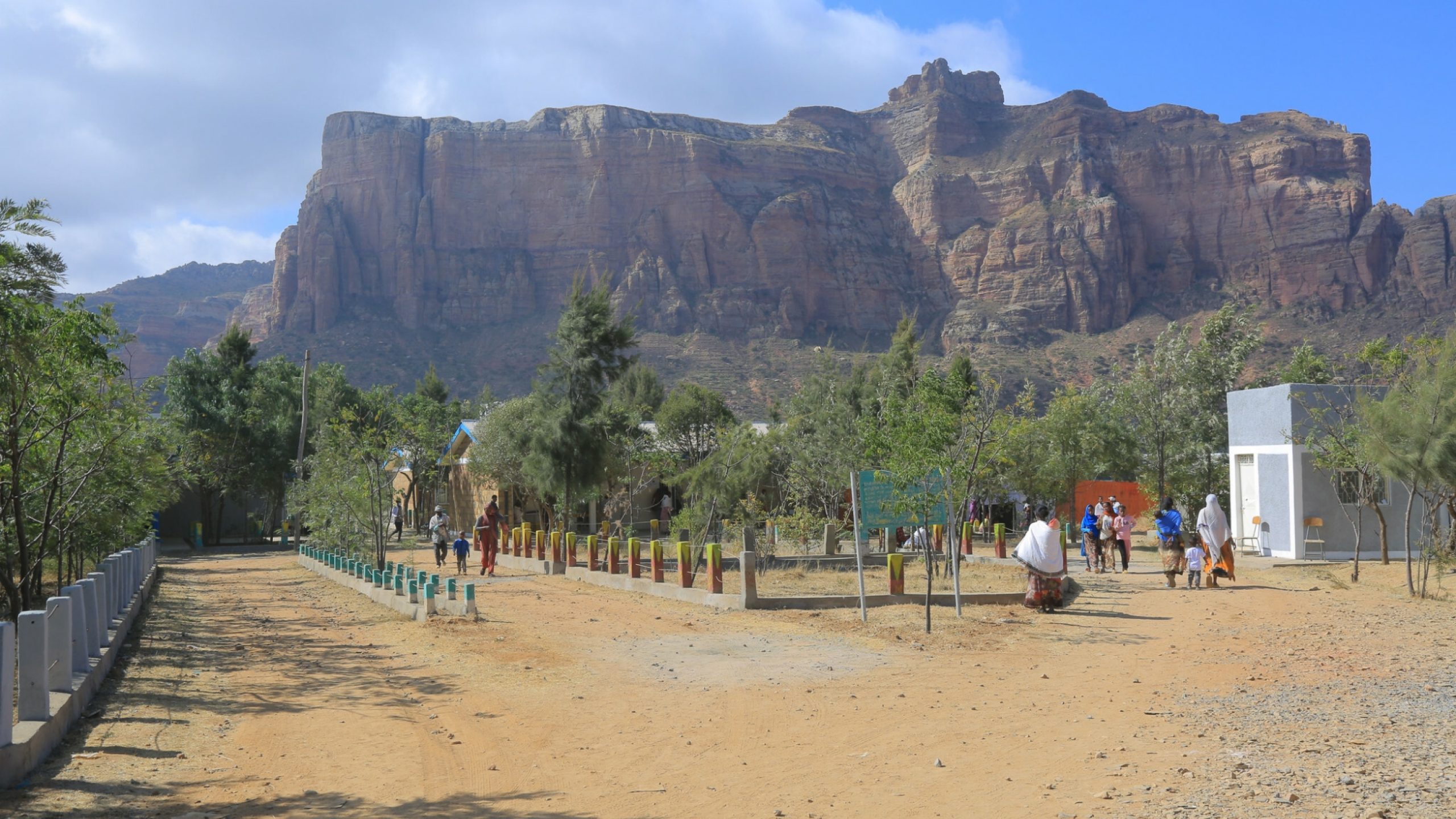The United Nations Office for Project Services (UNOPS)

Building foundations for hope and prosperity
The armed conflict in Tigray in northern Ethiopia not only disrupted lives but also shattered access to vital services – from healthcare and education to food and clean water.
- Photos: © UNOPS
The conflict in Tigray caused loss of lives, population displacement, destruction of social and economic infrastructure, and gender-based violence.
Families in Tigray lost any degree of stability. Access to basic needs such as food, water and shelter became uncertain.
To support the recovery and rehabilitation of the Tigray region, the government of Ethiopia and the World Bank partnered with UNOPS to implement $49 million worth of projects to improve living conditions for communities in Tigray.
UNOPS worked hand-in-hand with federal ministries, regional authorities, local communities and other UN organizations, such as UNICEF and UNFPA, to help restore access to basic services.
Education
Re-establishing opportunities for education
During the conflict, schools were closed and classrooms were significantly damaged, severely disrupting the education of thousands of children – leaving their futures hanging in the balance. As part of the Response-Recover-Resilience for Conflict-Affected Communities in Ethiopia (3R4CACE) Project, 40 primary schools were rehabilitated and reconstructed.
"Our school was completely devastated due to the conflict, resulting in the loss of classrooms, desks and blackboards," says Gebremikael Khishen, a teacher and director of the Koraro Primary School in Hawzen Woreda.
To ensure the school could re-open to students and provide a good learning environment, UNOPS repaired damage to the school, procured and delivered classroom equipment, and installed water, sanitation and hygiene facilities. Stipends were also paid to teachers to ensure lessons could continue.
As a result of this support, our students are now happy to come to school and are motivated to learn.




Health
Improving access to health services
Healthcare facilities were either damaged or looted during the conflict, leaving many people without access to life-saving medical care. Through the 3R4CACE Project, 32 health posts and centres were rehabilitated – enabling them to provide health services to the people who need them most.
At the Koraro Health Centre, most of the facility's rooms were completely destroyed or heavily damaged, including the delivery room – forcing the health centre to combine the delivery room with another ward.
“During the peak of the conflict, approximately 80 per cent of our health centre was non-functional," says Merhawit Gebrehiwot, Director of Koraro Health Centre.
Now, the health centre's rooms have been completely restored through the 3R4CACE Project.
The community has resumed visiting our health centre for their healthcare needs, as they feel content and assured of the centre's excellent condition to provide services.


Food security
Supporting food production
In addition to the conflict, a locust infestation in the region also hurt agricultural production. Farmers, who once relied on the land for their livelihoods, now grapple with the destruction of crops and the depletion of resources – deepening food insecurity in the region.
“My family of five relies on farming as our source of income," says Abrha Tesfay.
To support farmers like Abrha and to help increase access to food, UNOPS implemented part of an emergency locust response project in support of the government's efforts to manage the locust invasion.
This project helped support the rehabilitation of food production systems and livelihoods damaged or destroyed by locust swarms. As part of the project, UNOPS procured and delivered a variety of seeds and fertilizers on behalf of the government as well as organized capacity-building training on soil and water conservation and sustainable energy that reached more than 64,000 households. The project supported efforts to restore agriculture production in 28 woredas in Tigray.
Environment
Protecting the environment
To support livelihood opportunities and enhance environmental management for host communities and internally displaced people in Tigray, UNOPS also supported the Development Response to Displacement Impacts Project Phase II.
As part of the project, UNOPS engaged in restoration management activities covering nearly 300 hectares, including constructing soil and water conservation infrastructure.
More than 6,500 community members – more than 40 per cent of whom were women and 50 per cent of whom were youths – were paid to work on soil and water conservation activities, providing livelihood opportunities for the community.
"In the future, we will strengthen the already constructed soil and water conservation structure with biological plantation and support the communities by engaging them in woodlot plantation, apiculture [beekeeping] or other community livelihoods," says Abreha Gebreyohannes, a natural resource management expert. "Landless youths will benefit from this activity and lift the community out of poverty.”
The project has strengthened focus on environmental management, helping to foster long-term sustainability for both host communities and internally displaced people in Tigray.





















